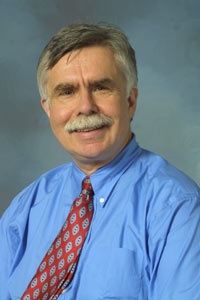My Archibald Cox Story
Elsewhere on this blog Professor Ed Fallone has shared the story of his receiving a B in Constitutional Law from legendary law professor Archibald Cox. I have my own Archibald Cox story.
I was Archibald Cox’s teaching assistant in the fall of 1980 for a course in the Harvard Government Department entitled “The Supreme Court and the Constitution.” The course was taken by about 200 undergraduates who hung on every word uttered by this legendary professor. This was not too long before Cox’s advanced age and Harvard’s then rigid mandatory retirement policy forced the former Watergate special prosecutor to the other side of the Charles River where he encountered the young Ed Fallone.
From Cox’s point of view, one of the best things about his course in the Government Department was that he did not have to grade the exams and papers as he did in his law school courses. Graduate students like myself and a few hand-picked Harvard Law students took care of that chore.
Nevertheless, Professor Cox was concerned that grading be fair and consistent, so the four teaching assistants met with him regularly to discuss the grading of each assignment. Mostly Professor Cox just told us “war” stories, like the one from a Con Law class many years earlier.
There were three essay questions on his exam that particular term. While grading the exams, Cox was suddenly stunned by one of the bluebooks. The student’s answer to the first of Cox’s question was clearly the best answer that Cox had ever encountered on any law school exam. Beautifully written, keenly analytical, and forcefully argued, Cox told us that he realized immediately that this was the product of an extraordinary intelligence and that he was confident that most of his colleagues on the Harvard Law faculty could not write such an answer, even to one of their own questions.
He then read the second essay, and it was even better than the first. Fascinated, he turned to the third essay but found only the words “Out of time” scrawled across the last page of the bluebook.
How to grade such an exam was Cox’s dilemma. The instructions to the exam clearly stated that each question would be weighted equally. The first two essays were clearly A+ answers, but how could the third be anything other than an F? Arithmetically speaking, two A+’s and an F averaged out to a B-. Yet how could an exam like this be a B- exam? It obviously bore no similarity whatsoever to any of the other mediocre exams that were destined to be marked B-.
Cox told us that he agonized over this decision for several days, and just as submitted his final grades, he decided to give the student an A on the theory that the work showed an exceptional understanding of constitutional law, if not the most advanced time-management skills.
With a little prodding, Prof. Cox revealed to us that the student was Elliot Richardson, who of course later became a close friend of Cox and served as Attorney General of the United States in the Nixon Administration. Richardson is best remembered for his refusal to fire Archibald Cox as Watergate special prosecutor when requested to do so by President Nixon, a decision that ultimately cost both Cox and Richardson their jobs, but which made both men national heroes.
During my own career as a law professor, I have always tried to follow Cox’s insight while grading. I have tried not to let my grades be narrowly dictated by a mathematical formula that fails to take into account unconventional forms of insight and brilliance. Sometimes the whole really is greater than the sum of its parts.
I have also come to realize that Cox’s story is a perfect metaphor for the career of Elliot Richardson. Richardson was a young Harvard graduate who performed heroically in World War II and then returned to Harvard Law School, where he was selected as President of the Harvard Law Review and later clerked for the legendary federal judge Learned Hand and for United States Supreme Court Justice Felix Frankfurter. He was shortly thereafter elected as Lieutenant Governor and Attorney General of Massachusetts as a liberal Republican, and he held three different cabinet offices in the Nixon Administration. However, many of his admirers expected Richardson to someday be President of the United States, or at least a United States Senator or a Governor, but he never attained the highest realm of public office.
In 1984, a few years after Cox told us his story, Richardson seemed poised to enter the United States Senate to replace the retiring Paul Tsongas, but it was not to be. He stumbled badly in the campaign and lost the Massachusetts Republican primary to a little known businessman named Ray Shamie, and the Senate seat went to John Kerry, who holds it to this day. Moreover, it is hard to point to anything as the legacy of the public career of Elliot Richardson, other than his Watergate heroics, which really just consisted of resigning from office.
In the world of politics, as on his law school Con Law exam, Elliot Richardson had a brilliant start, but he never got to the third question.
For the sake of full disclosure, my Con Law professor at the University of Virginia was John Jeffries, and I received the grade of A-.

 In her recent post,
In her recent post, 